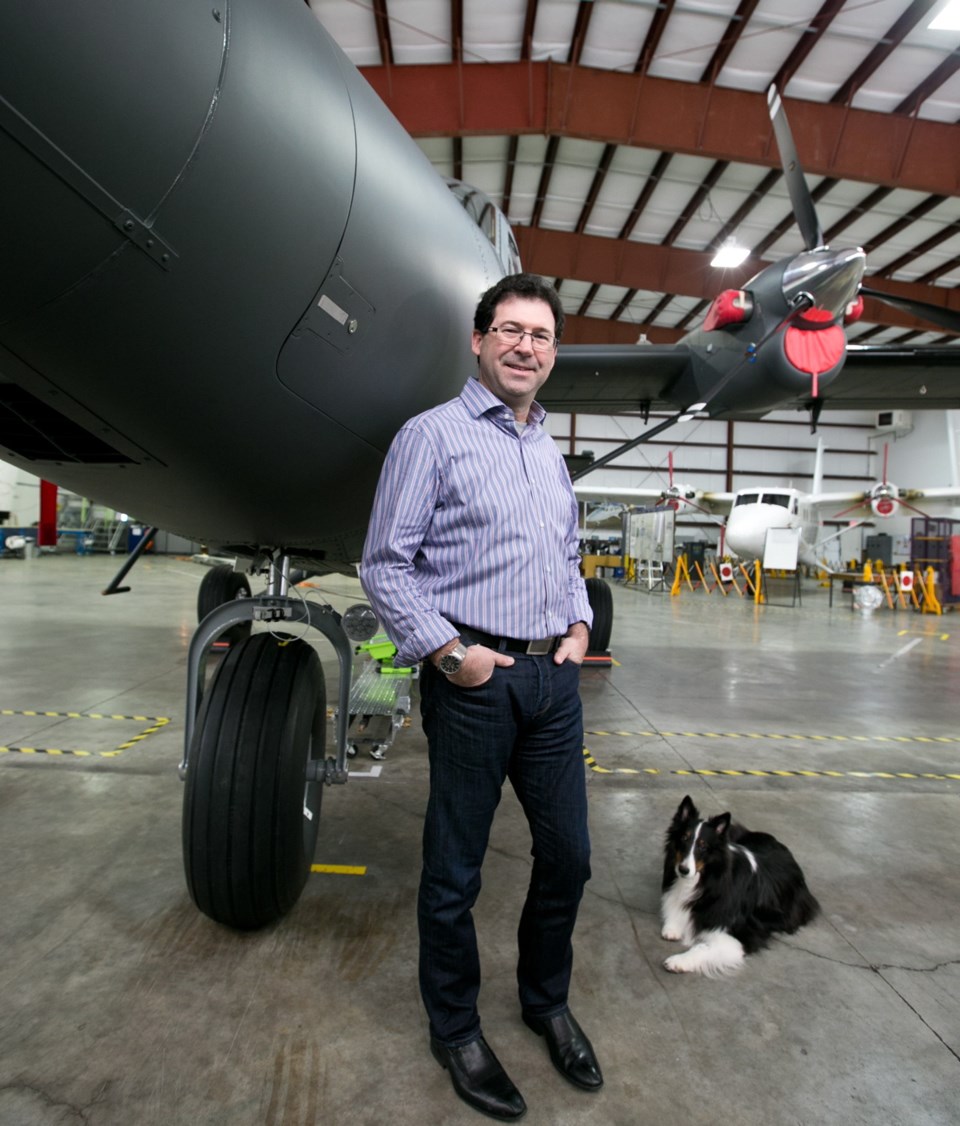Viking Air is expanding into China after signing its biggest deal ever, one it predicts will lead to billions of dollars worth of business.
Beijing’s Reignwood Aviation Group has agreed to buy 50 Twin Otters over five years from the North Saanich-based aircraft manufacturer. The starting price for a Series 400 Twin Otter is about $7 million. The company believes that sales to China will grow to 500 aircraft over the next two decades — exports that add up to about $3.5 billion.
The deal to supply and market Twin Otter planes in China may see it also providing aircraft to Harbour Air’s new operation in that country.
Viking will deliver the first two Twin Otters to Reignwood this year. One will be a float plane and the other will be designed to operate from land.
“Reignwood’s world-class reputation and depth of experience in the aviation sector will give the Series 400 Twin Otter immediate traction in the Chinese market, which is anticipated to reach 500 aircraft over 20 years,” David Curtis, Viking president and chief executive officer, said in a statement Wednesday. Curtis and other Viking officials are attending the International Paris Air Show.
The agreement will make Reignwood the exclusive representative for Twin Otters in China. Reignwood owns companies specializing in aircraft-related businesses, including airport construction, aircraft operations and maintenance, and pilot training.
The partnership means Viking will be able to “tap into this extensive market potential, where the seaplane segment is expected to expand rapidly over the next 10 years,” Curtis said.
The deal is welcome news for Viking, which laid off 116 workers in April after some purchasers backed out of orders and the pace of sales declined. There are no immediate plans to hire back workers, but the agreement helps to secure existing jobs, said Dominique Spragg, Viking’s vice-president of strategic planning.
Other Chinese companies approached Viking, Spragg said. Viking has been in talks with Reignwood and other firms over the past 18 to 24 months.
Viking and Reignwood are seeking a location for a factory in China. While the planes will continue to be built in Canada, they will be customized in China.
“We are not going to manufacture aircraft in China,” Spragg said. “The bulk of the work is still very much at home.”
Expected Chinese markets include commuter services, government services, private businesses and VIP transport heading into difficult-to-reach places, Spragg said.
Twin Otters are made at Viking factories in North Saanich and Calgary. The company has about 500 employees; about 375 of them are in North Saanich, Spragg said. Viking is owned by Westerkirk Capital Inc., a Canadian firm, led by Sherry Brydson of Victoria.
Viking has sales representatives around the globe and has sent aircraft to 27 countries. Next year, the company expects to build 18 Twin Otters, Spragg said.
The deal with Reignwood comes as Viking marks the 50th anniversary of the first flight of the original Twin Otter made by de Havilland Canada.
De Havilland produced more than 800 of the turboprop Twin Otters between 1965 and 1988. In 2007, Viking announced it would build a modernized version of the reliable workhorse.
Twin Otters have two engines and carry 19 passengers.
Spragg said he is not aware of any discussions to date with Harbour Air about supplying Twin Otters for the Vancouver company’s new partnership with another Chinese firm, Tianchen General Aviation Co. Harbour Air and Tinchen are launching a new air service in China. But there are limited choices among newer-model float planes, so it’s possible they’ll turn to Viking, Spragg said.
Viking is anticipating additional business via its Reignwood agreement to train Chinese pilots. Last month, Viking announced it will build a new flight-training simulator to train pilots.
Viking is the first Canadian company to take advantage of the new Bilateral Aviation Technical Arrangement signed in February between Canada and China to streamline approval for aeronautical products from each other’s countries. Its aim is to open up new markets in China for Canadian firms.



